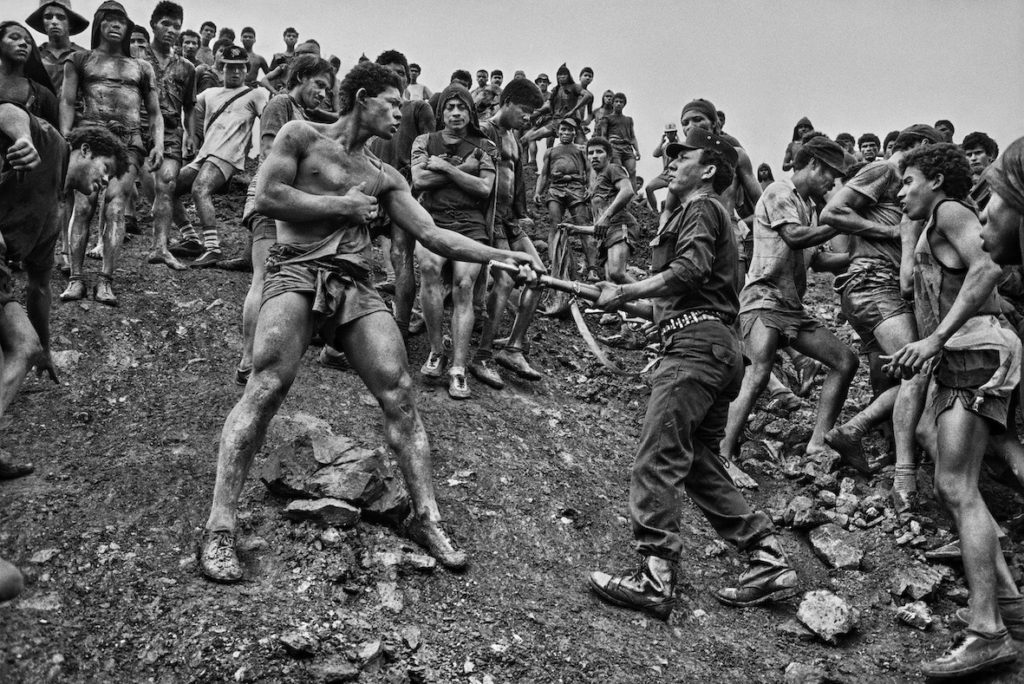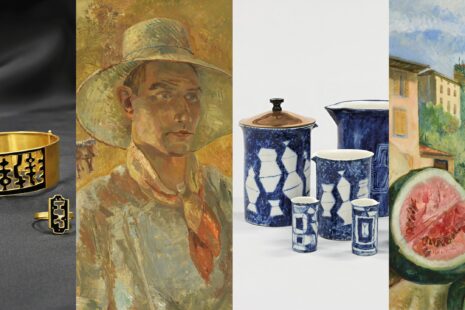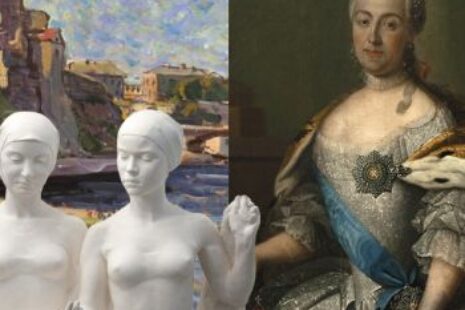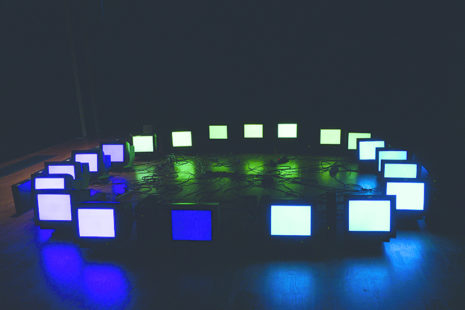“Some think of me as a photojournalist. It isn’t true. Others think I am an activist. That isn’t true either. The only truth is that photography is my life. All my photos correspond to moments that I have experienced intensely. All these images exist because life, my life, has driven me to make them,” describes the photographer Salgado himself.
It took six years – finally, it happened in 1986 – to grant the permission to document what was going on in Serra Pelada because the military regime was heavily opposed to this. At that time Serra Pelada was the world’s largest open gold deposit located in the hot and inhospitable jungle, 430 km from the Amazon. It attracted 52 000 gold prospectors, many of whom had to endure inhumane working conditions in the hopes of realising the dream of a better life for both themselves and their families.
Gold is as much a tribute to the human struggle for a dignified existence as it is a challenge to the status quo: are there truly no better ways to sustainably distribute Earth’s resources than brutal capitalism? Whether those resources be people, viewed as a raw material comprising infinitely significant, untapped potential, or our planet’s natural world.
“For a decade, it evoked the long-promised El Dorado, but today Brazil’s wildest gold rush is merely the stuff of legend, kept alive by a few happy memories, many pained regrets – and photographs,” Salgado says.
On the walls of the exhibition area, we can see men of different ages, classes and skin colours climbing on flimsy ladders while carrying heavy, 40-kilo bags. It is easy to believe that they are climbing on each other mistakenly, but no. Instead, this is a tableau of well-oiled, anarchically organised collaboration devised by the gold prospectors themselves. Each plot, measuring three by two metres, was claimed by a man while another financed the actual gold prospecting and any profit was shared equally between them. The heavy, physical work, mining the rock and carrying away the ore, was performed by hired hands who dreamed of being the one who would get to share in a bag filled with gold.
“I soon learned that what at first glance looked like a disorderly movement of men was, in fact, a highly sophisticated system, in which every one of the 52 000 men working there knew the role he had chosen to play,” Salgado explains.
Gold is a classic photographic series, with the legendary use of a technique whose foremost quality is its ability to evoke our emotions and provoke thought. “Bringing the works of the grand old man of documentary photography, who recently celebrated his 76th birthday, to Estonia is a real honour. Salgado works are a treasure in recent photography history that hopefully bring storytelling and history fans to the exhibition,” says Maarja Loorents, Exhibitions Lead at Fotografiska Tallinn.
Sebastião Salgado, born in 1944 in Minas Gerais, Brazil, is an award-winning French-Brazilian photographer and nature lover and lives in Paris together with his wife Lélia Wanick Salgado, who produces and curates all his projects. He fled political oppression in Brazil and, after studying economics, began working as a professional photographer in 1973 in Paris in affiliation with agencies such as Magnum until 1994. Together with Lélia Wanick Salgado, he then founded Amazonas images – today this structure is their studio. Since the 1990s, the couple have also worked together for rainforest restoration in Brazil, and in 1998 managed to get a land area designated as a nature reserve and created Instituto Terra, dedicated to replanting, conservation and education in environmental issues.
Salgado’s images have resulted in many photo-reportages published in magazines and newspapers as well as in books and exhibitions. In 1989 he received the Hasselblad Award and is a UNICEF Goodwill Ambassador and an honorary member of the Academy of Arts and Sciences in the United States, and has collaborated with humanitarian organizations and worked for UNICEF, UN, WHO and Médecins Sans Frontières.
Gallery name: Fotografiska Tallinn
Address: Telliskivi 60a/8, Tallinn
Opening hours: Mon, Sun 09:00 - 21:00, Tue-Thu 09:00 - 23:00, Fri-Sat 09:00 - 01:00
Open: 01.06.2020 - 31.08.2020







